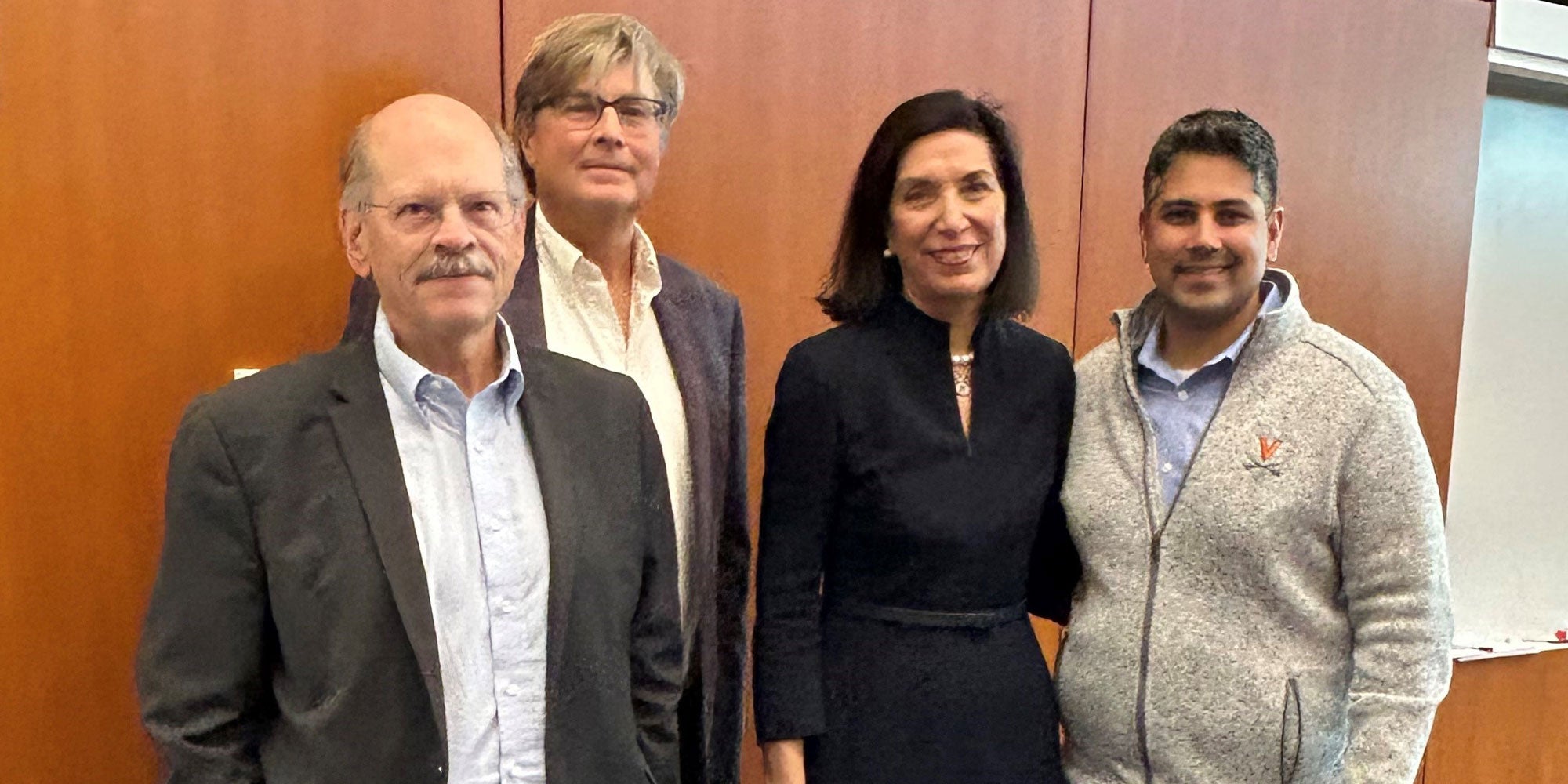
(From left) Stephen S. Rich, PhD; P. Todd Stukenberg, PhD; Huda Y. Zoghbi, MD; and Sameer S. Bajikar, PhD
Neurodegenerative diseases are progressive conditions that involve the gradual damage, and ultimately death, of neurons (nerve cells) in the brain and nervous system that leads to a decline in both motor and cognitive function. These disorders affect people of all ages and includes both common (Alzheimer’s disease, Parkinson’s disease, and ALS) and rare forms (spinocerebellar ataxia, spinal muscular atrophy) of neurodegeneration. In addition, there are diseases that lose synapses and dendritic connections but are do not lose neurons such as Rett syndrome. In order to understand how to better treat individuals with these diseases, with ultimate hope for a cure, a combination of approaches involving genetics, cell biology, and biochemistry are needed to understand how mutations in genes can lead to neurodevelopmental disorders. The Anderson Lecture hosted Huda Y Zoghbi, MD, from the Baylor College of Medicine on September 22, 2025, to share her research about neurodegenerative diseases. Dr. Zoghbi is a preeminent scholar and researcher who discovered the genetic basis for Rett syndrome and spinocerebellar ataxia type. Her current work is elucidating the mechanisms of disease and developing therapies to lessen the burden of disease in affected individuals.
Dr. Zoghbi’s seminar told the story of Rett syndrome, and how her research career was rooted in her clinical encounters with patients suffering from this rare disorder that typically affected girls, but also more severely in boys. Her laboratory discovered that Rett syndrome was caused by mutations in the X-linked methyl-CpG-binding protein 2 (MECP2). Her work using mouse models of the disease demonstrated that mammalian neurons are highly sensitive to the amount of MeCP2. Critically, her laboratory showed that one could “normalize” MeCP2 levels in mice using antisense oligonucleotides (ASOs) that reverse symptoms even in mature (adult) mice. Her current work is focused on identification of a biomarker for MeCP2 levels in the brain, understanding how MeCP2 is regulated in Rett syndrome, and how to best target regulators of MeCP2 levels to provide a new therapy.
The lecture hall for Dr. Zoghbi’s seminar was attended by students, postdoctoral fellows, residents, and faculty from across Grounds. Dr. Zoghbi is an elected member of the American Association of Arts and Sciences, the Institute of Medicine, the National Academy of Science and recipient of the prestigious Breakthrough Prize in Life Sciences, the Brain Prize from the Lunbeck Foundation, the Kavli Prize in Neuroscience from the Norwegian Academy of Science and Letters, and many other awards and honors.
The Anderson Lecture series was started 70 years ago when UVA School of Medicine alumnus John Anderson, MD, provided a generous gift to the medical school to support a lecture by a prominent scientist in medicine or public health. Today, the Anderson Lectureship has become a venue to unite the UVA scientific community by inviting prominent scientists of our age to Grounds every spring and fall.
Upcoming Anderson Lectures
The Anderson Committee has received acceptance for the next two Anderson Lectures.
- Richard Lifton, MD, PhD, human geneticist and current president of Rockefeller University, discovered many of the genes regulating blood pressure and will give an Anderson Lecture in March 2026.
- Eva Nogeles, PhD, from UC Berkeley, a structural biologist who has solved the structure of tubulin and other critical proteins, will present in September 2026.
The Anderson Lecture committee welcomes nominations for future lecturers. Visit the Office for Research Anderson Lecture website.
Filed Under: Research
